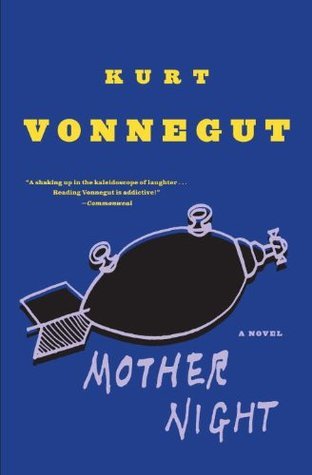TL;DR
"Mother Night" by Kurt Vonnegut Jr. is a provocative exploration of morality through the story of Howard W. Campbell, Jr., an American spy on trial as a Nazi war criminal, challenging the nature of guilt and identity.
What is Mother Night about
"Mother Night" tells the story of Howard W. Campbell, Jr., an American who becomes a Nazi propagandist during World War II, shaping the narrative of his life as a memoir written from prison. As he awaits trial for war crimes in Israel, Campbell reflects on his dual identity: a spy working against the Nazis while pretending to be one of them. Vonnegut deftly navigates the complexities of morality, guilt, and human nature, presenting a narrative that questions how one's actions define their character and the ambiguity of right and wrong. The book, rich with dark humor, serves as a commentary on the moral dilemmas faced during wartime, suggesting that even those with the best intentions can become ensnared in a web of deception and moral compromise.
Mother Night 6 Key Takeaways
The Memoir Structure
The novel is presented as Howard W. Campbell, Jr.'s memoir, capturing his reflections and thoughts as he faces trial, allowing readers to see his internal conflict and struggle with identity.
Life in Nazi Germany
Campbell recounts his childhood and life in Nazi Germany, illustrating how he became a propagandist and the influences that shaped his choices amid the rise of the Nazi Party.
The Trial
The tension escalates as Campbell is put on trial in Israel, where his past actions as a propagandist come under scrutiny, forcing him to confront the complexities of his identity and guilt.
The Revelation of Betrayal
A pivotal moment occurs when Campbell receives a letter revealing his true role as a spy, complicating the perception of his guilt and morality.
The Themes of Identity
Vonnegut explores themes of personal identity, the masks we wear, and the moral ambiguity of Campbell's life, raising questions about how we define ourselves.
The Conclusion
The story culminates in Campbell's suicide, which he frames as a result of his internal conflicts, leaving a haunting message about self-identity versus public persona.
Top Mother Night Quotes
- "We are what we pretend to be, so we must be careful about what we pretend to be."
- "The truth is, I am not a Nazi, but I have played one on the radio."
- "I was not a Nazi, I was a spy. But does that make any difference?"
Who should read Mother Night?
"Mother Night" is ideal for readers interested in moral philosophy, historical fiction, and those who appreciate dark humor and satire. It offers valuable insights into the complexities of human nature and the moral dilemmas faced in extreme situations, inspiring reflection on personal identity and ethics.
Mother Night Best Reviews
- "A compelling satire of morality and identity, Vonnegut's 'Mother Night' navigates the murky waters of good versus evil with razor-sharp wit and profound insight." - The New York Times
- "Vonnegut masterfully intertwines humor with tragedy, creating a narrative that is both entertaining and profoundly thought-provoking. A true classic." - Kirkus Reviews
- "This novel is a brilliant exploration of the human condition, challenging readers to examine their own beliefs and the world around them." - The Guardian
People also liked these summaries
Mother Night FAQs
What is the main theme of "Mother Night"?
The main theme of "Mother Night" revolves around the moral complexities of identity, the nature of evil, and the consequences of one’s actions, questioning how societal roles shape personal beliefs.
How does the character of Howard W. Campbell, Jr. evolve throughout the novel?
Throughout the novel, Campbell grapples with his dual identity as both a propagandist and a spy, forcing him to confront the moral implications of his actions and ultimately leading to a crisis of self.
What does the ending of "Mother Night" signify?
The ending, marked by Campbell's suicide, signifies a profound internal conflict and the struggle between one's public persona versus private identity, leaving readers with a haunting message about self-perception.
